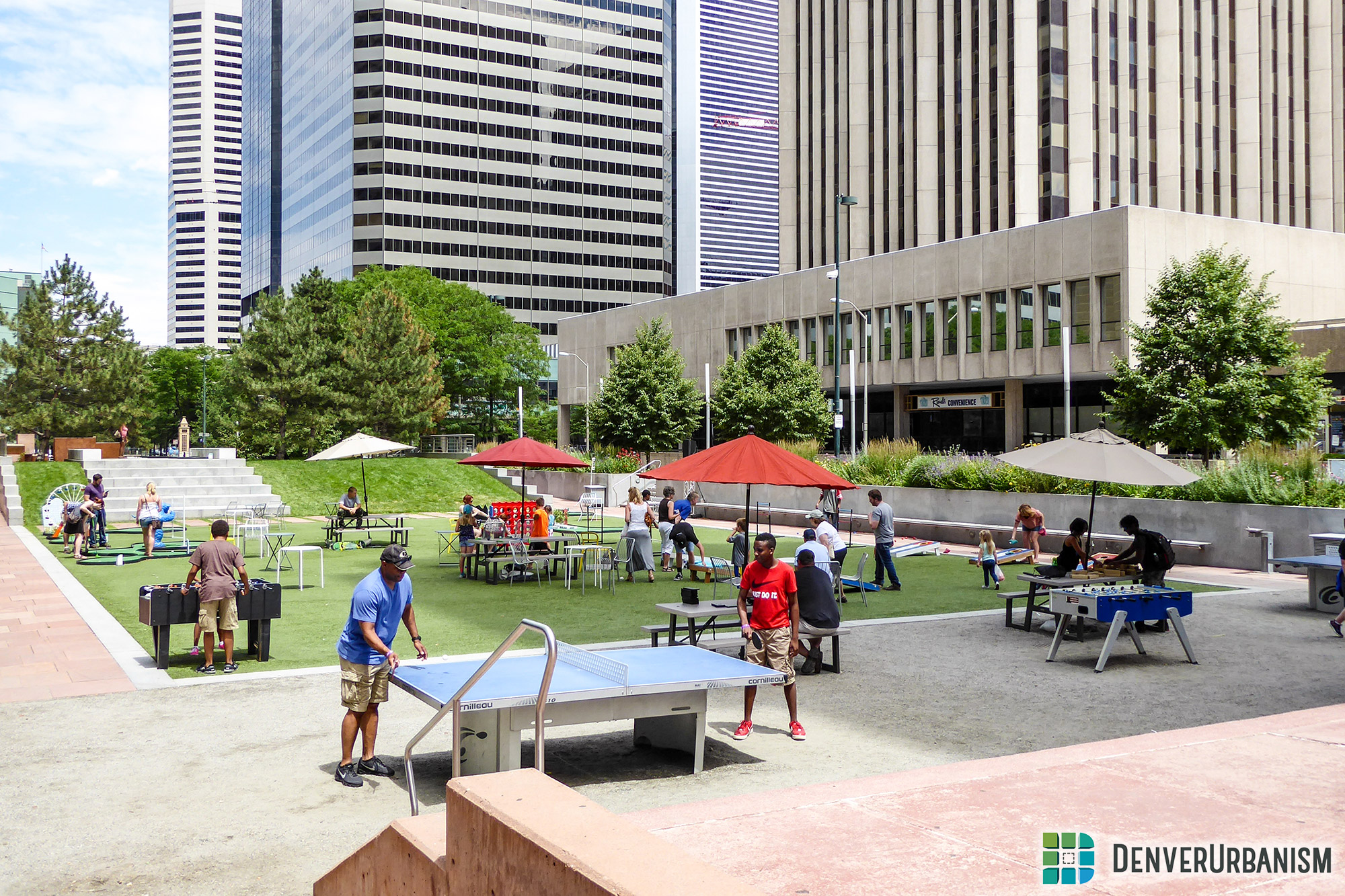Everyone in Denver knows that we have a housing affordability crisis but what are we always discussing? Adding to our parking minimums and thereby increasing the cost of housing. Everyone in Denver knows we have a traffic problem but what do we find ourselves talking about? Adding parking to make it easier to bring more cars into congested neighborhoods. Everyone in Denver has acknowledged that we need to make the city more walkable, bikeable, and transit friendly and yet what do we ruminate about? Increasing parking minimums as if they will accomplish any of those things. Why is this?
We’ve thought a great deal about people who have cars and how to make their lives easier by adding more parking, but we’ve seemingly given little thought to making it easier for people who don’t want cars, who don’t need cars, or who can’t afford cars—a not insignificant portion of the city. If we want to make it easier for people to choose transportation other than cars and reduce the need for car ownership, we have to build compact, walkable neighborhoods. The small mixed-use lots which were the impetus for the formation of the recent “small lot parking exemption study” created by Councilmen Brooks & Kashmann support exactly that kind of development. Unfortunately the group was convened on the presumption that developments without parking are a problem when in fact they are the solution.
I used to live in the neighborhood of Clayton, which is northwest of Colorado and Martin Luther King Jr. Boulevard. It’s full of single family homes and has plentiful street parking. Now I live in Capitol Hill, which is full of apartment buildings and has just as much street parking but it’s always full. In Clayton I could always park in front of my house; but you know what? There were very few jobs. There were also no restaurants, coffee shops, clothing or hardware stores. In Capitol Hill I can walk to four grocery stores. In Clayton I had to drive three miles just to get to one. In Capitol Hill if I need to do so I can walk downtown or bike to Cherry Creek for every modern American need. But the parking is terrible.
Now guess which residence has a cheaper mortgage? Guess which place actually reduces my cost of living? Which neighborhood has a greater diversity of housing, incomes, and opportunities? I met some great people in Clayton but for a financially viable neighborhood full of convenience and opportunity, Capitol Hill wins out. The problem is there are so many people focused on making parking easy that they’ve forgotten what it is to make living easy. Or affordable. Denver doesn’t need parking minimums—it needs to get rid of parking minimums and allow the kind of development that produces neighborhoods where cars aren’t needed.












While I agree with you, the situation is complicated by the way the city is currently zoned. Before the city had a zoning code, people built what they wanted where they wanted. However, mixed-use development was built along streetcar lines because that where the customers were. Plus, as the need warranted it, growth could occur along those streetcar lines organically. That is not possible today.
Now, any property that’s zoned mixed-use in a neighborhood that was established during the ‘Great Rezoning’ is fixed. So even if the population of a neighborhood did not grow, the amount of retail/commercial business is fixed and any more that would be needed to allow that neighborhood to become more walkable can’t develop unless someone was willing to petition for a rezoning. Even in neighborhoods that have identified mixed-use corridors in their neighborhood plan (e.g. Sunnyside), only part of those corridors are zoned for mixed-use development. Growth of mixed-use spaces cannot grow organically, which only helps to keep those neighborhoods “fixed in amber.”
I want abundant, free parking. Congestion-free driving. A walkable neighborhood with restaurants and coffee shops and bars within walking distance. I want to easily get to my workplace without delay and without inconvenience or dealing with “undesirables” so that’/ why I “can’t” take the bus. I am an American and I want everything to cater to and center around me. It’s everybody else who’s making my life miserable and those people should pay to increase the subsidies I’ve been receiving for 30 years.
JerryG is right. Euclidean zoning is the underlying issue, and if we could increase the number of places that allowed commercial and residential uses to be built in proximity, and in an increased density, many of the issues would go away, in theory. Of course, Houston hasn’t ever had a zoning code and that hasn’t worked out very well for urbanism…
Anthony, JerryG, You’re rubbing closer and closer to the core issue that’s wrapped around the whole subject of “urbanism” — as a philosophy and a social planning science. What is the ideal city, equitable for all? The perpetual Colorado mantra is about Quality of Life. Very subjective, depending on your perspective.
I often wonder how much of the downtown parking is for people who live outside Denver city limits? What do we as Denver taxpayers pay to keep the roads updated within our jurisdiction so that these people in their cars can drive downtown to park for work?
Can you match locations with the photos in the article? Thanks 🙂
The parking lot photo is at about 19th and Lincoln, and the other photo is Skyline Park.